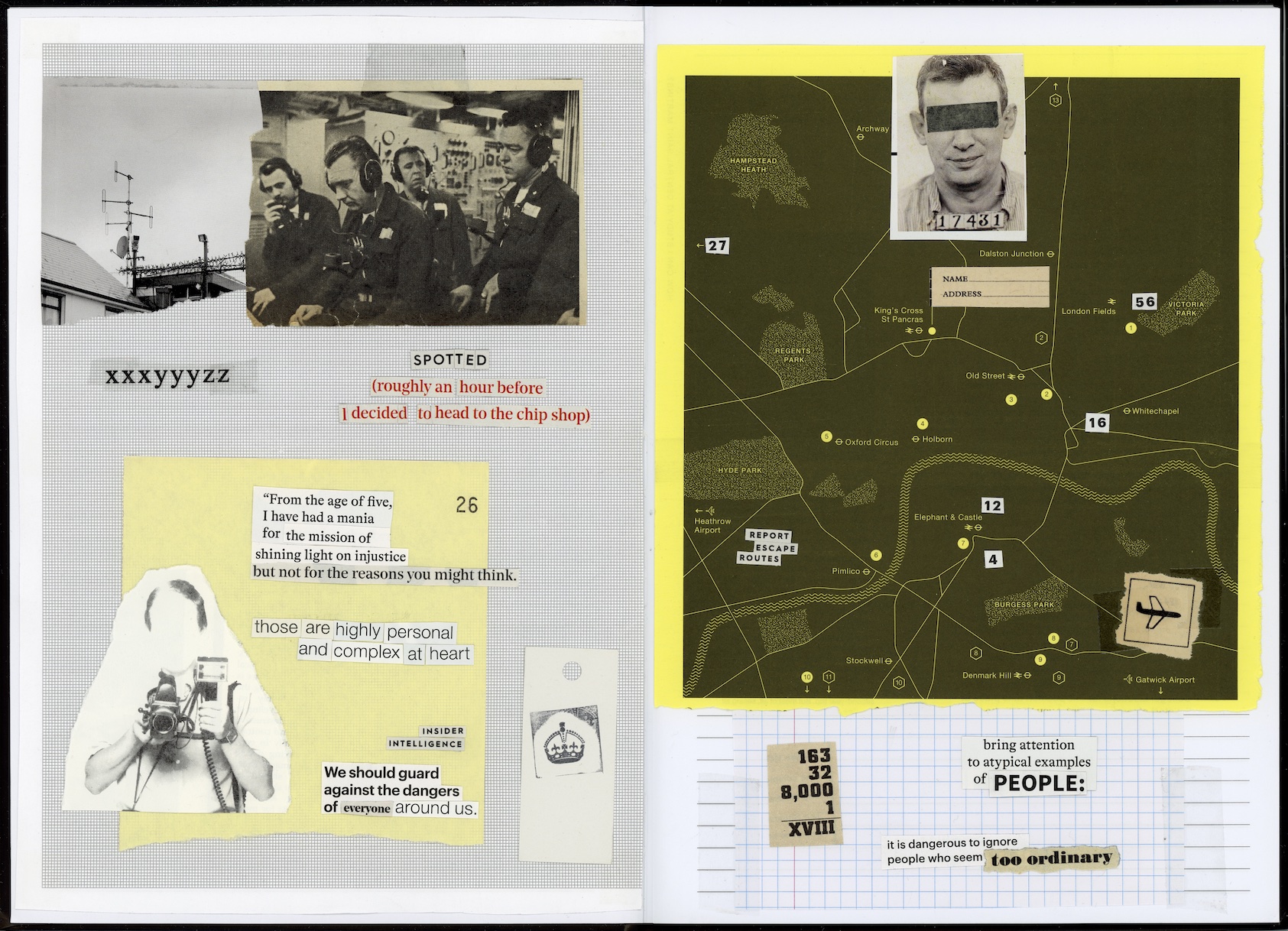All images from the series Being Framed © Laura Chen
This article is part of the Education collection, a series of interviews highlighting student and early career photographers.
Inspired by her childhood imagining wild detective stories, Laura Chen has constructed a new world of justice, lying somewhere between fact and fiction
In 1979, Detective Chief Inspector (DCI) Dean Wilson began leading The Department of Marginalised Cases, a new North London police division specialising in peculiar, mundane crimes. DCI Wilson was well-known for his dedication to fighting “petty offences and misdemeanours,” investigating the everyday and the minor: neighbourly arguments, secret gatherings, lost pets, broken trinkets, missing shoes. For Wilson, there was no case too small, with each mystery being treated with the same severity.
Wilson and his Department of Marginalised Cases are a fiction, part of a story developed by Dutch photographer Laura Chen. Born in 1997 and recently graduated from the University of Westminster with an MA in photography, Chen is as much DCI Wilson as Agatha Christie was Poirot.
In her graduate project Being Framed, Chen builds Wilson’s playful, enigmatic world, combining found images with her own street photography, often through collage. “Everything has a story,” she says of her disparate imagery. Chen documents anything that piques her interest, storing it, waiting for correlations and patterns to emerge: a row of disembodied mannequins, a single stiletto hanging off a fence, clouds reflected in windows. “I can sense the history in these objects,” she adds. ”Something grows out of these traces, I look back at what I’ve been shooting, and find a wider story unfolding.”
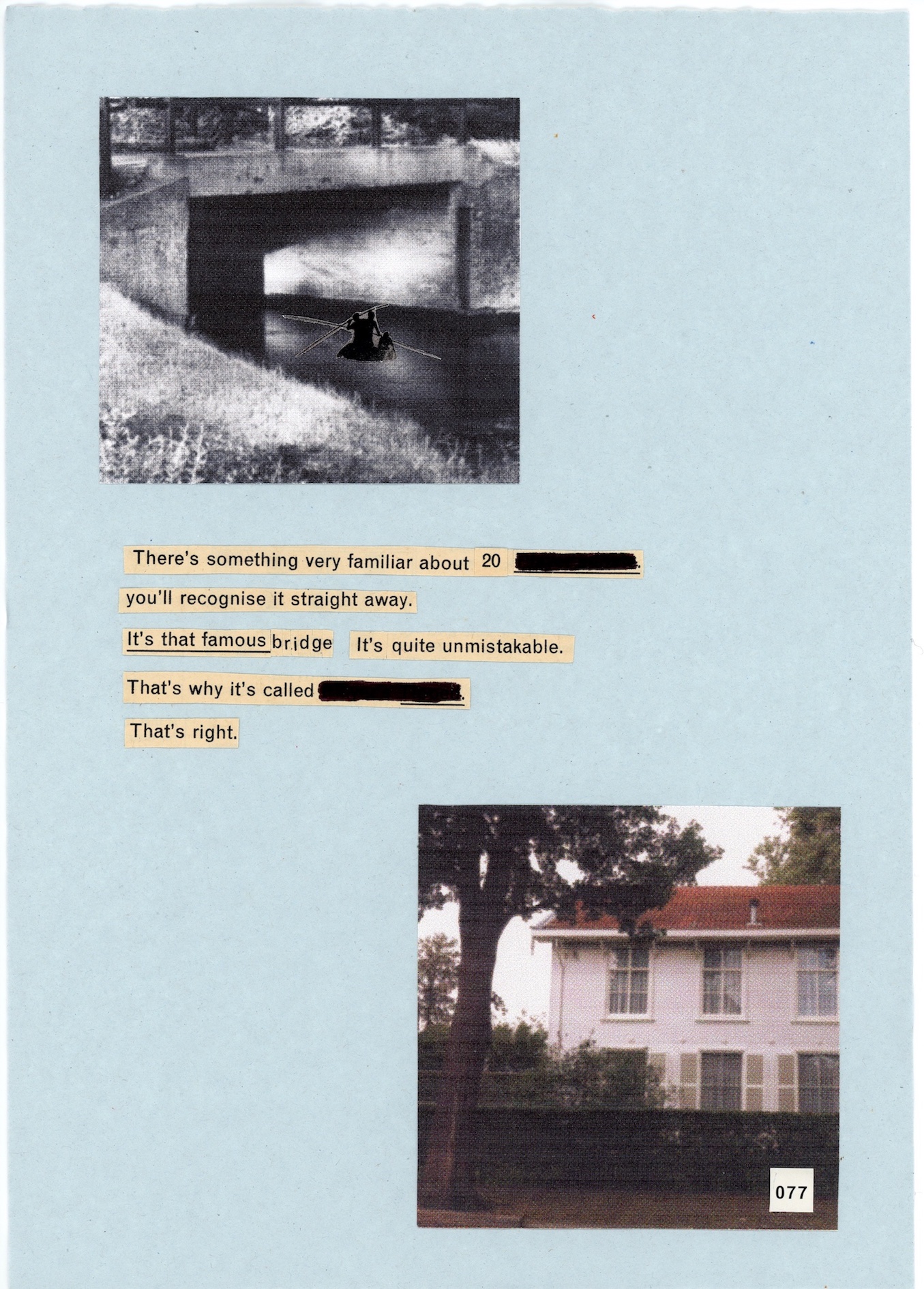
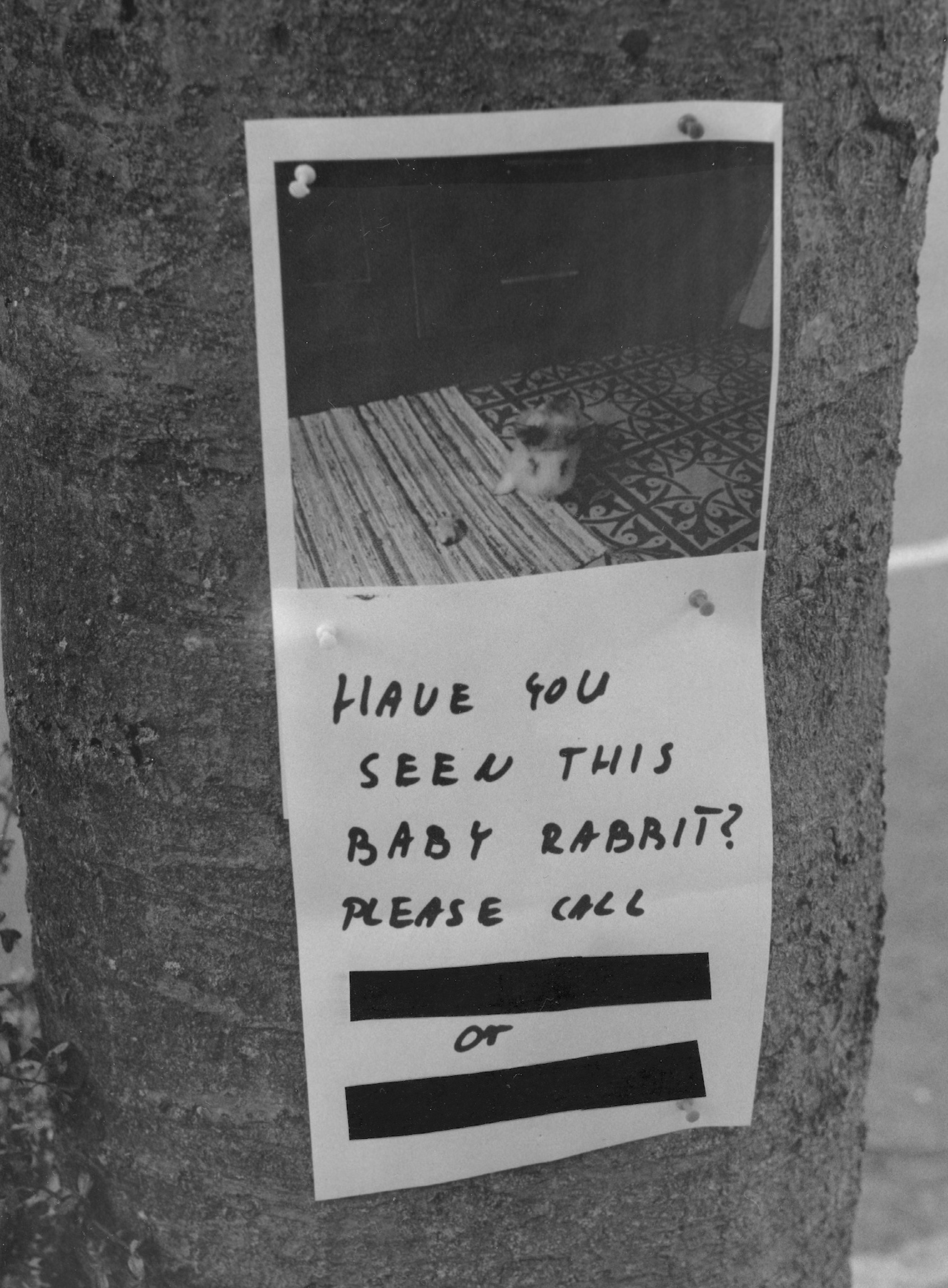
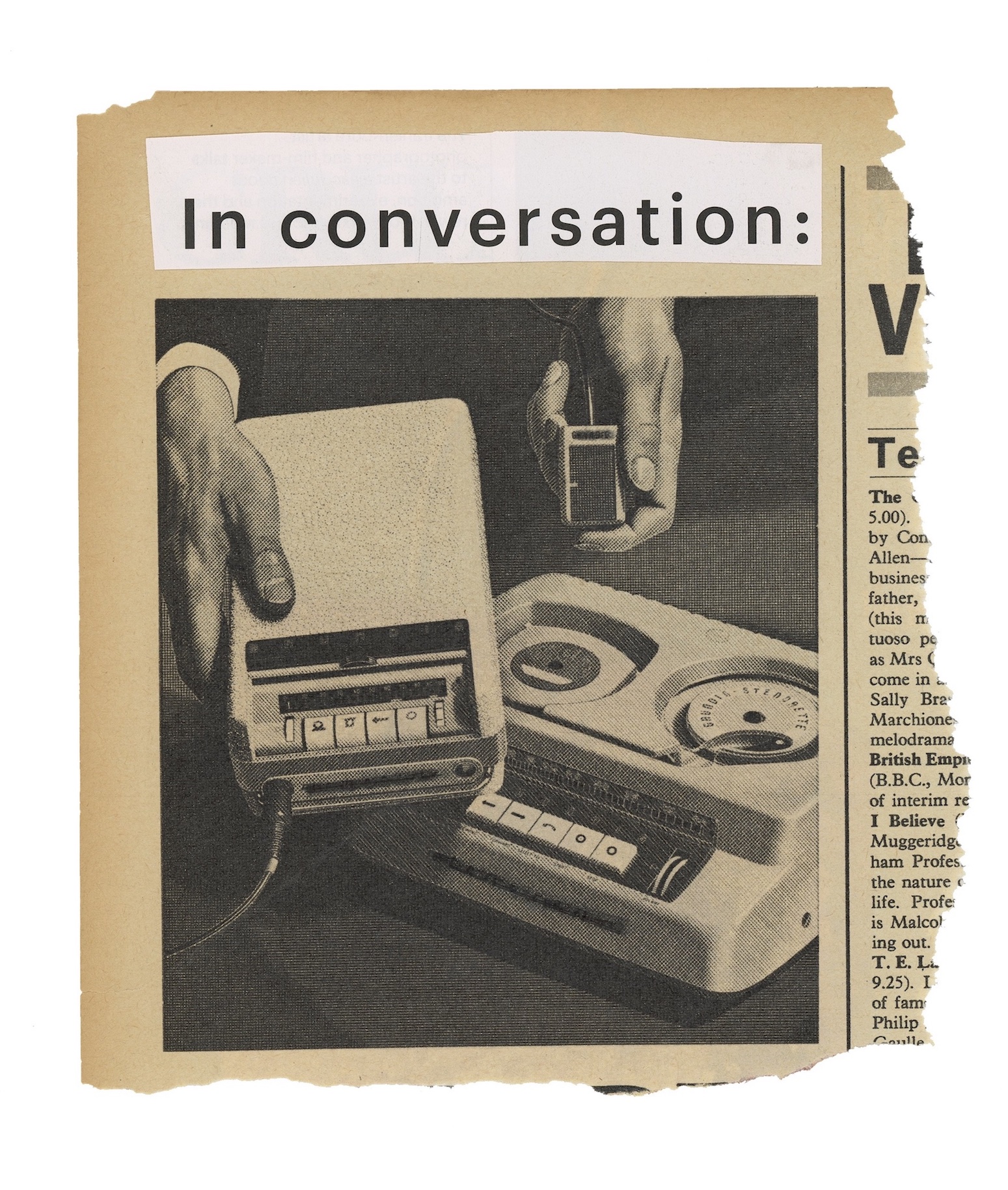
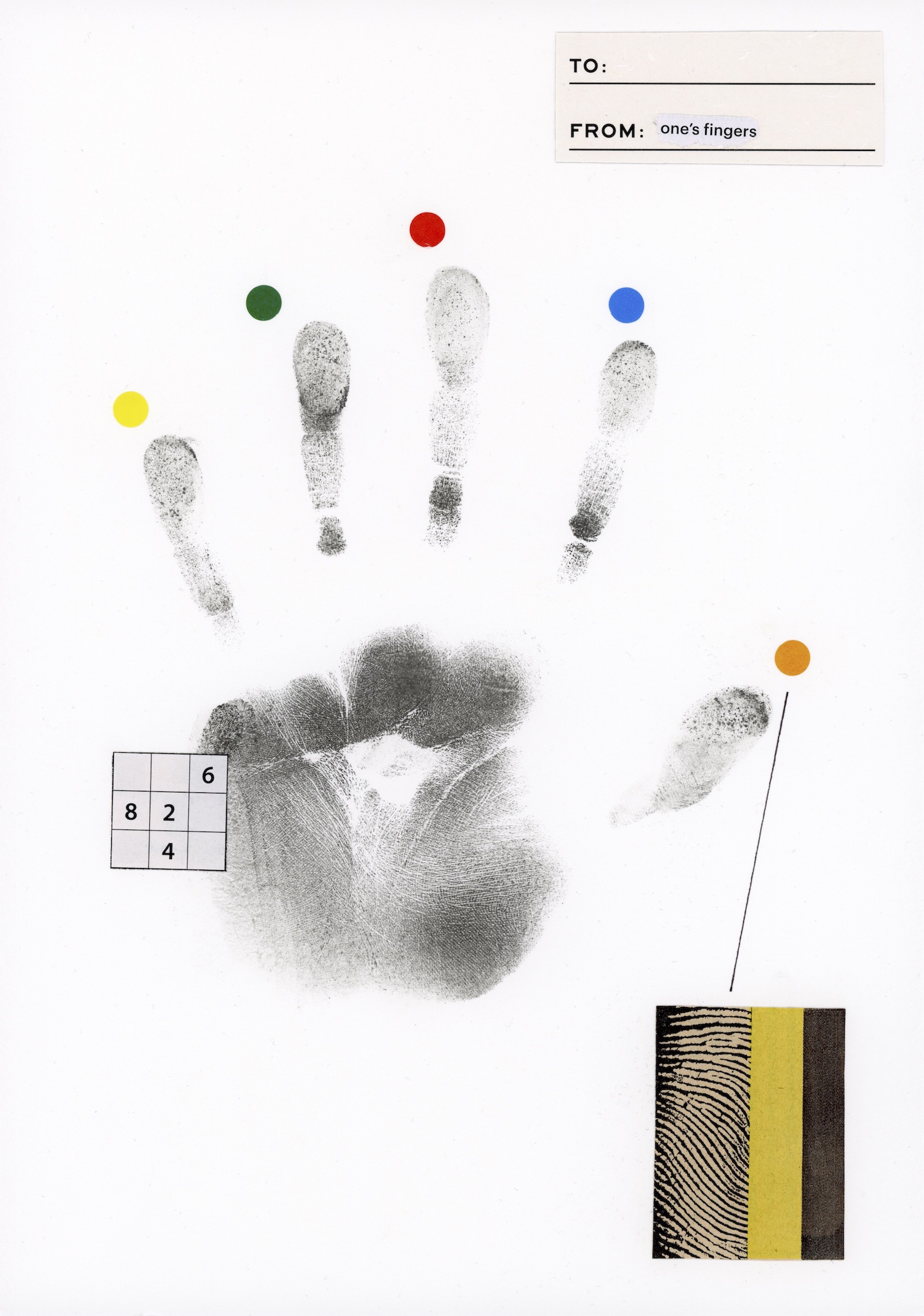
“What counts as an important crime, how much time, research, and resources are dedicated to different crimes, and why?”
As a child, Chen would play detective: spying on family members, observing and investigating imagined scenarios. She compares this play to photography, the inherent storytelling that grows from a collection of lens-based evidence. “[The MA] helped me make sense of the puzzle pieces,” she tells me, referring to her growing archive of images.
Being Framed consists of these puzzles, each acting as a story prompt: A “Have you seen this rabbit?” poster, a boot print suspended in cement, a gap in the fence. The work plays with trickery and deception, presenting a series of mysteries void of any real-life referent. Images are reappropriated to create whatever the photographer, and viewer, can imagine.
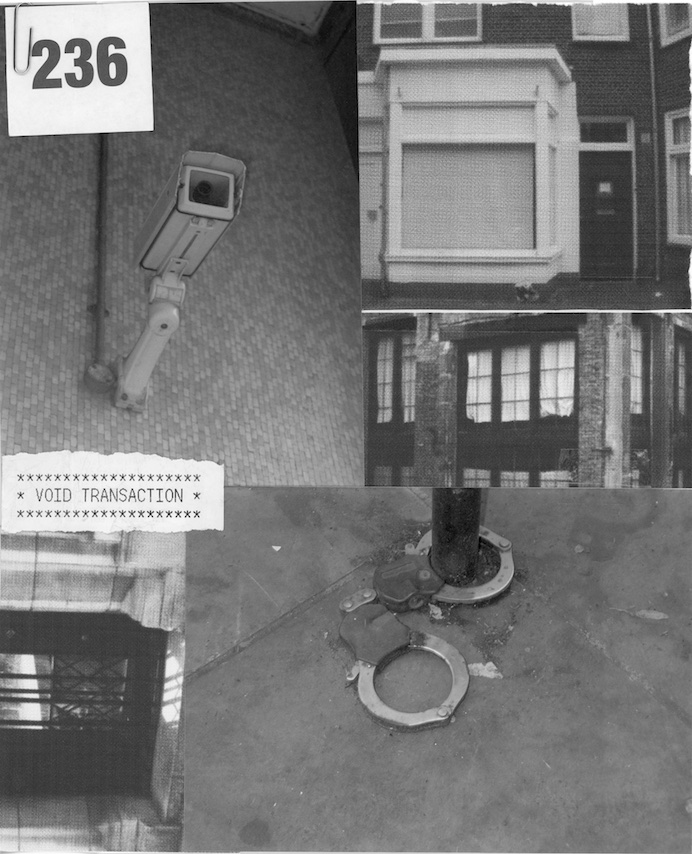
“What counts as an important crime, how much time, research, and resources are dedicated to different crimes, and why?” Chen asks. “DCI Wilson thinks any crime should be treated seriously, the kind of seriousness you would want if your dog went missing,” she says, laughing. Being Framed is playful, drawing on Chen’s childhood love of “silliness” and detective stories. She is imagining a world in which someone is out there all the time, trying to solve every single mystery. “If my dog was stolen, I would want the Department of Marginalised Cases to get to the bottom of it,” she says.
Ultimately, Being Framed is a “punchline that never comes,” a mystery one cannot solve. DCI Wilson never cracks a case, but investigates each with deadly seriousness; in the Department of Marginalised Cases, nothing is marginalised. By borrowing techniques from both crime scene photographers and photojournalists, Chen documents fiction as a case file. She bridges artistic image-reading with interpretation, squeezing stories out where none existed prior. “I want the viewer to bring their own imagination,” she says. “I want them to try and figure it all out.”

